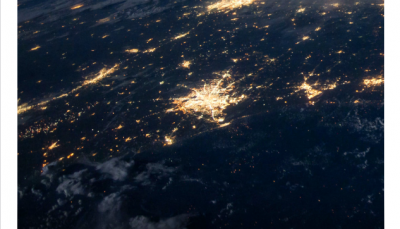


The International Science Council (ISC) announced the publication of 'Urban Health and Wellbeing in the Anthropocene', its 2021-2025 Science Action Plan.
As highlighted by Prof. Dr. Zhu Yongguan in his foreword, "[t]he impact of the Urban Health and Wellbeing Programme has crossed the boundaries well beyond those of the city and has shown us how urban, peri-urban, rural and natural environments are all interlinked and interdependent determinants of planetary health. The systems approach is a necessary tool to better understand these interdependencies and develop solutions for enhancing human, urban and planetary health in the real world."
Depei Liu, president of the InterAcademy Partnership (IAP) and IAP representative at the Steering Committee of the Urban Health and Wellbeing (UHWB) programme, is among the co-signatories of the publication's preface.
The 2021-2025 Plan is an important milestone in UHWB’s existence. We have no doubt that it will lead to critical projects and collaborations that will advance urban health and wellbeing worldwide.
In the first years of its existence, UHWB has made strong contributions to our understanding of the factors and dynamics affecting the health and wellbeing of urban populations, thereby supporting cities’ efforts to implement the New Urban Agenda and achieve the SGDs. The 2021-2025 Plan marks the culmination of a stock-taking exercise by the programme’s Scientific Committee (SC) of key programme achievements and of evolutions in the field of urban health since 2011. The UHWB SC has now identified the “health of cities” as the core focus of the programme’s activities in the coming years, evolving from its previous ambition to advance healthy lives in healthy cities.
This development is more than a change in semantics; it denotes an expansion from a focus on human health to approaches where cities create conditions for healthy people and for a healthy planet. As the recent COVID-19 pandemic has demonstrated, the interlinkages, synergies, trade-offs and feedbacks between human systems and environmental systems in a rapidly urbanizing world make such integrated approach of human health and planetary health necessary and urgent. Cities are neuralgic centres in our social-environmental systems. They are the loci where much of the challenges emerge but also where the foresight, planning and decision-making on how to address them can be made and implemented. UHWB’s work on the health of cities and its populations will be of immediate relevance to city administrations and urban populations as they seek to improve urban health and wellbeing within planetary boundaries and while harnessing synergies across health and sustainability.
As co-sponsors of UHWB, the ISC and ISUH want to thank the Chinese Academy of Sciences’ Institute of Urban Environment in Xiamen for its unfailing support of the programme as host of its International Programme Office. We also want to acknowledge the Chinese Association for Science and Technology and the Xiamen municipality, for their help and engagement with the programme.
Preface, Urban Health and Wellbeing in the Anthropocene.
You can read the full UHWB 2021-2025 Science Action Plan here.